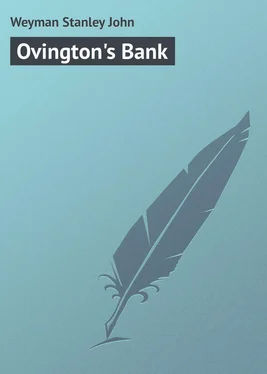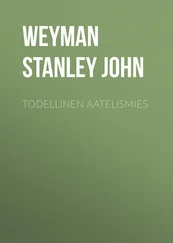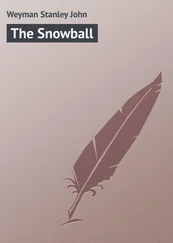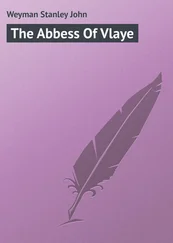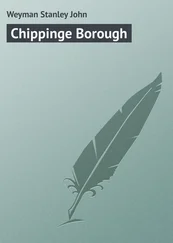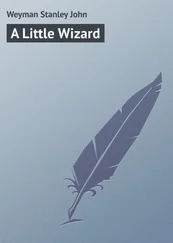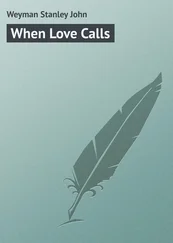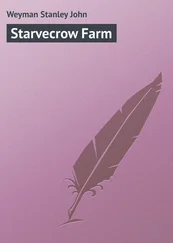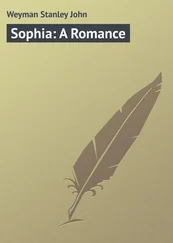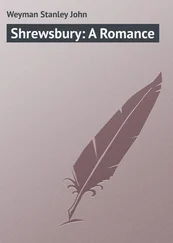Stanley Weyman - Ovington's Bank
Здесь есть возможность читать онлайн «Stanley Weyman - Ovington's Bank» — ознакомительный отрывок электронной книги совершенно бесплатно, а после прочтения отрывка купить полную версию. В некоторых случаях можно слушать аудио, скачать через торрент в формате fb2 и присутствует краткое содержание. Издательство: Иностранный паблик, Жанр: foreign_language, foreign_prose, на английском языке. Описание произведения, (предисловие) а так же отзывы посетителей доступны на портале библиотеки ЛибКат.
- Название:Ovington's Bank
- Автор:
- Издательство:Иностранный паблик
- Жанр:
- Год:неизвестен
- ISBN:нет данных
- Рейтинг книги:5 / 5. Голосов: 1
-
Избранное:Добавить в избранное
- Отзывы:
-
Ваша оценка:
- 100
- 1
- 2
- 3
- 4
- 5
Ovington's Bank: краткое содержание, описание и аннотация
Предлагаем к чтению аннотацию, описание, краткое содержание или предисловие (зависит от того, что написал сам автор книги «Ovington's Bank»). Если вы не нашли необходимую информацию о книге — напишите в комментариях, мы постараемся отыскать её.
Ovington's Bank — читать онлайн ознакомительный отрывок
Ниже представлен текст книги, разбитый по страницам. Система сохранения места последней прочитанной страницы, позволяет с удобством читать онлайн бесплатно книгу «Ovington's Bank», без необходимости каждый раз заново искать на чём Вы остановились. Поставьте закладку, и сможете в любой момент перейти на страницу, на которой закончили чтение.
Интервал:
Закладка:
"But farmers-"
"Oh, I know," sorrowfully, "it must seem a very low thing to you."
"Farmers don't look at snowdrops, Mr. Ovington," with a gleam of fun in her eyes.
"Don't they? Then they ought to, and they'd learn a lot that they don't know now. I've met men, laboring men who can't read or write, and it's wonderful the things they know about the land and the way plants grow on it, and the live things that are only seen at night, or stealing to their homes at daybreak. And there's a new wheat, a wheat I was reading about yesterday, Cobbett's corn, it is called, that I am sure would do about here if anyone would try it. But there," remembering himself and to whom he was talking, "this can have no interest for you. Only wouldn't you rather plod home weary at night, feeling that you had done something, and with all this" – he waved his hand-"sinking to rest about you, and the horses going down to water, and the cattle lowing to be let into the byres, and-and all that," growing confused, as he felt her eyes upon him, "than get up from a set of ledgers with your head aching and your eyes muddled with figures?"
"I'm afraid I have not tried either," she said. But she smiled. She found him new, his notions unlike those of the people about her, and certainly unlike those of a common farmer. She did not comprehend all his half-expressed thoughts, but not for that was she the less resolved to remember them, and to think of them at her leisure. For the present here was the mill, and they must part. At the mill the field-path which they were following fell into a lane, which on the right rose steeply to the road, on the left crossed a cart-bridge, shaken perpetually by the roar and wet with the spray of the great mill-wheel. Thence it wound upwards, rough and stony, to the back premises of Garth.
He, too, knew that this division of the ways meant parting, and humility clothed him. "Heavens, what a fool I've been," he said, blushing, as he met her eyes. "What must you think of me, prating about myself when I ought to have been thinking only of you and asking your pardon."
"For nearly shooting me?"
"Yes-and thank God, thank God," with emotion, "that it was not worse."
"I do."
"I ought never to carry a gun again!"
"I won't exact that penalty." She looked at him very kindly.
"And you will forgive me? You will do your best to forgive me?"
"I will do my best, if you will not carry off my basket," she replied, for he was turning away with the basket on his arm. "Thank you," as he restored it, and in his embarrassment nearly dropped his gun. "Good-bye."
"You are sure that you will be safe now?"
"If you have no fresh accident with your firearms," she laughed. "Please be careful."
She nodded, and turned and tripped away. But she had hardly left him, she had not passed ten paces beyond the bridge, before her mood changed. The cloak of playfulness fell from her, reaction did its work. The color left her cheeks, her knees shook as she remembered. She felt again the hot blast on her cheek, lived through the flash, the shock, the onset of faintness. Again she clung to the stile, giddy, breathless, the landscape dancing about her. And through the haze she saw his face, white, drawn, terror-stricken-saw it and strove vainly to reassure him.
And now-now he was soothing her. He was pouring out his penitence, he was upbraiding himself. Presently she was herself again; her spirits rising, she was playing with him, chiding him, exercising a new sense of power, becoming the recipient of a man's thoughts, a man's hopes and ambitions. The color was back in her cheeks now, her knees were steady, she could walk. She went on, but slowly and more slowly, full of thought, reviewing what had happened.
Until, near the garden door, she was roughly brought to earth. Miss Peacock, visiting the yard on some domestic errand, had discerned her. "Josina!" she cried. "My certy, girl, but you have been quick! I wish the maids were half as quick when they go! A whole afternoon is not enough for them to walk a mile. But you've not brought the eggs?"
"I didn't go," said Josina. "I was frightened by a gun."
"A gun?"
"And I felt a little faint."
"Faint? Why, you've got the color of a rose, girl. Faint? Well, when I want galeny eggs again I shan't send you. Where was it?"
"Under the Thirty Acres-by the stile. A gun went off, and-"
"Sho!" Miss Peacock cried contemptuously. "A gun went off, indeed! At your age, Josina! I don't know what girls are coming to! If you don't take care you'll be all nerves and vapors like your aunt at the Cottage! Go and take a dose of gilly-flower-water this minute, and the less said to your father the better. Why, you'd never hear the end of it! Afraid because a gun went off!"
Josina agreed that it was very silly, and went quickly up to her room. Yes, the less said about it the better!
CHAPTER VII
The terraced garden at Garth rested to the south and east on a sustaining wall so high that to build it to-day would tax the resources of three Squires. Unfortunately, either for defence or protection from the weather, the wall rose high on the inner side also, so that he who walked in the garden might enjoy the mellow tints of the old brickwork, but had no view of the country except through certain loop-holes, gable-shaped, which pierced the wall at intervals, like the port-holes of a battleship. If the lover of landscape wanted more, he must climb half a dozen steps to a raised walk which ran along the south side. Thence he could look, as from an eyrie, on the green meadows below him, or away to the line of hills to westward, or turning about he could overlook the operations of the gardener at his feet.
More, if it rained or blew there was at the south-west corner, and entered from the raised walk, an ancient Dutch summer-house of brick, with a pyramidal roof. It had large windows and, with much at Garth that served for ornament rather than utility, it was decayed, time and damp having almost effaced its dim frescoes. But tradition hallowed it, for it was said that William of Orange, after dining in the hall at the oaken table which still bore the date 1691, had smoked his pipe and drunk his Schnapps in this summer-house; and thence had watched the roll of the bowls and the play of the bias on the turf below. For in those days the garden had been a bowling green.
There on summer evenings the Squire would still drink his port, but in winter the place was little used, tools desecrated it, and tubers took refuge in it. So when Josina began about this time to frequent it, and, as winter yielded to the first breath of spring, began to carry her work thither of an afternoon, Miss Peacock should have had her suspicions. But the good lady saw nothing, being a busy woman. Thomas the groom did remark the fact, for idle hands make watchful eyes, but for a time he was none the wiser.
"What's young Miss doing up there?" he asked himself. "Must be tarnation cold! And her look's fine, too! Ay, 'tis well to be them as has nought to do but traipse up and down and sniff the air!"
Naturally it did not at once occur to him that the summer-house commanded a view of the path which ran along the brook side; nor did he suppose that Miss had any purpose, when, as might happen perhaps once a week, she would leave her station at the window and in an aimless fashion wander down to the mill-and beyond it. She might be following a duck inclined to sit, or later-for turkeys will stray-be searching for a turkey's nest. She might be doing fifty things, indeed-she was sometimes so long away. But the time did come when, being by chance at the mill, Thomas saw a second figure on the path beside the water, and he laid by the knowledge for future use. He was a sly fellow, not much in favor with the other servants.
Presently there came a cold Saturday in March, a wet, windy day, when to saunter by the brook would have too odd an air. But would it have an odd look, Josina wondered, standing before the glass in her room, if she ran across to the Cottage for ten minutes about sunset? The bank closed early on Saturdays, and men were not subject to the weather as women were. Twice she put on her bonnet, and twice she took it off and put it back in its box-she could not make up her mind. He might think that she followed him. He might think her bold. Or suppose that when they met before others, she blushed; or that they thought the meeting strange? And, after all, he might not be there-he was no favorite with Mrs. Bourdillon, and his heart might fail him. In the end the bonnet was put away, but it is to be feared that that evening Jos was a little snappish with Miss Peacock when arraigned for some act of forgetfulness.
Читать дальшеИнтервал:
Закладка:
Похожие книги на «Ovington's Bank»
Представляем Вашему вниманию похожие книги на «Ovington's Bank» списком для выбора. Мы отобрали схожую по названию и смыслу литературу в надежде предоставить читателям больше вариантов отыскать новые, интересные, ещё непрочитанные произведения.
Обсуждение, отзывы о книге «Ovington's Bank» и просто собственные мнения читателей. Оставьте ваши комментарии, напишите, что Вы думаете о произведении, его смысле или главных героях. Укажите что конкретно понравилось, а что нет, и почему Вы так считаете.
